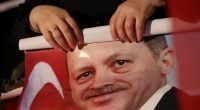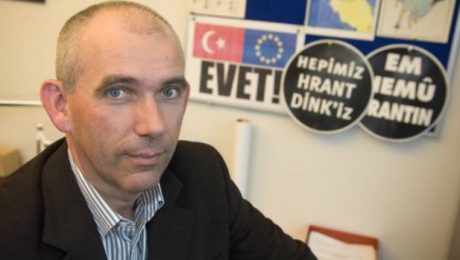News

They think we are terrorists, they think we are evil
Another woman, a former Turkish journalist before the government shut down papers that spoke out against it, said: “I feel like my voice has been taken. People don’t feel safe in London, even going shopping, because we don’t know what radicals will do.”

Turkish Gov’t media targets exiled journalists, their lives at risk
Following President Erdoğan’s statement that no country is safe for Gülen movement sympathizers, the pro-AKP media targeted exiled journalists in the US and Europe on Monday. Turkey’s National Intelligence Organization has been tasked with locating, arresting and even killing military officers who fled Turkey after allegedly taking part in a failed coup attempt in July, according a story in the Vatan daily on Aug. 30.

Tortured detainee would choose 50 years in prison over return to custody in Turkey
“I looked for a lawyer for days, but I failed. None of the lawyers agreed to defend my husband. The bar association will assign a lawyer. I feel so helpless. My husband is being tortured. I fear for his life and mental health. Please help me!”
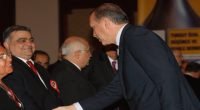
Turkish minister’s leaked email shows trustees to Gulen affliated organizations not appointed by courts
In the email Ahmet Özal says: “Definitely, trustees will be appointed to Turgut Özal University. … I think the esteemed president will also be happy if I cleanse Turgut Özal University [of Gülen sympathizers] and end the association between that community and my father’s name. I would be very pleased if you could convey this issue to the president [Erdogan] and help me get his support and approval.”

Turkish minister’s leaked emails show pro-gov’t figure has eye on Gülen-linked dormitory
Leaked emails of Turkey’s energy minister and son-in-law of President Recep Tayyip Erdoğan, Berat Albayrak, have revealed plans by a pro-government figure to assume ownership of a dormitory in Kayseri province that used to be operated by the Gülen movement but was closed down by the Justice and Development Party (AKP) government.
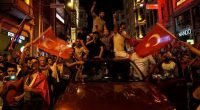
Did Turkey Really Save Democracy On July 15?
The government is yet to renovate that place, preserving the area for foreign delegations as a showcase for the savagery of putschist soldiers. Ankara makes sure that every visiting foreign official is making their pilgrimage to the site, through dust and scattered rocks, so that they see firsthand how the mutineering soldiers attacked the Turkish democracy.

Turkish police to plant Gülen’s books in ISIL cells, journalist claims
In the latest of an ever-growing demonization of Fethullah Gülen at the hands of Turkish government, police are set to deliberately put his books in ISIL cells in a bid to reveal an alleged connection between the cleric and the terrorist organization, according to a Turkish journalist.

13 criteria Erdogan regime uses to determine Gulen supporters are terrorists
Dr. Ismail Sezgin of the Centre for Hizmet Studies in the UK highlights the 13 criteria, based on Turkish PM Binali Yildirim’s statement, to identify Gulen supporters, who the regime considers terrorists. The arrests and purge in Turkey are made according to these criteria. Dr. Sezgin explains that these are nothing to with coup-plotting or terrorism. With these criteria the government of Turkey can anyone and this is what has been happening in Turkey.

Erdoğan to US: What verdict? What court for terrorists?
Turkish President Tayyip Erdoğan said during a reception before his departure from New York on Thursday that a court trial is not necessary for US-based Turkish Islamic scholar Fethullah Gülen, whose teachings have inspired the Gülen movement, designated a terrorist organization and accused of plotting a failed coup in Turkey on July 15.

Biden’s office refutes Turkish minister’s claim that US has proof Gülenists plotted coup
US Vice President Joe Biden’s office refuted a claim made by Bekir Bozdağ, justice minister of Turkey, who said on Thursday night that Biden had confirmed that substantive information on the involvement of US-based Turkish Islamic scholar Fethullah Gülen had been received by the US as part of an extradition request submitted by Ankara this month.
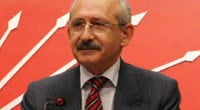
CHP leader says Erdoğan’s UN speech only served to promote Gülen movement
Republican People’s Party (CHP) leader Kemal Kılıçdaroğlu has criticized a speech delivered by Turkish President Recep Tayyip Erdoğan at a UN meeting on Tuesday in which he called on world leaders to take measures against the faith-based Gülen movement, saying that Erdoğan’s speech only served to promote the Gülen movement.

